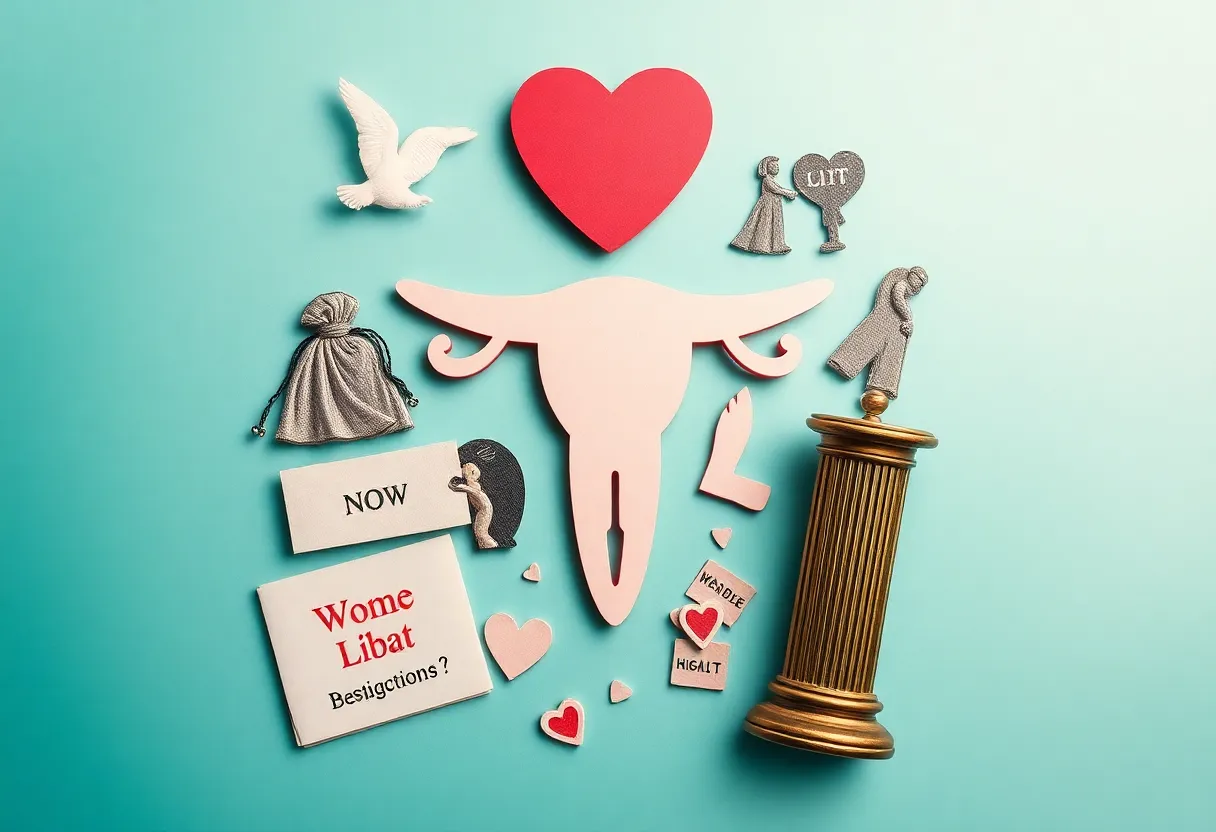News Summary
A 31-year-old woman faces felony charges of desecration of human remains after her miscarriage. This case highlights the alarming trend of the criminalization of miscarriage in South Carolina, with advocates concerned about the implications for women’s health and rights. Reports suggest that the woman’s medical situation is being treated as a criminal issue, which raises ethical questions about how such cases are handled legally and socially.
Florence, South Carolina – A 31-year-old woman, referred to as “B,” is facing serious legal repercussions after being arrested for desecration of human remains following a miscarriage. This felony charge could lead to a prison sentence of up to ten years for the woman, whose case has sparked widespread concern and debate regarding the treatment of women experiencing miscarriage in South Carolina.
Reports indicate that local media initially stated that B had “dumped” what was described as a “stillborn baby” in a plastic bag. However, further investigation has established that she experienced an 18-week miscarriage, during which the fetus was not deemed viable outside the womb. This revelation raises questions about the appropriateness of the accusations leveled against B, as the nature of the charge appears to deviate from the legal understanding of miscarriage.
B was arrested after seeking medical assistance at a hospital where staff alerted child protective services regarding her situation. This incident is part of a worrying trend in South Carolina, where miscarriages can trigger child abuse investigations. Legal experts and advocates express concern that the criminalization of miscarriage could lead to further stigmatization and fear among women seeking medical care during vulnerable times.
The legal director of Pregnancy Justice has highlighted that B’s situation is fundamentally medical rather than criminal. This perspective aligns with growing evidence indicating an increasing trend of miscarriage-related arrests across the country. In the year following the Dobbs decision, over 200 arrests were reported concerning pregnancy-related offenses, emphasizing an alarming pattern of criminalizing pregnancy complications.
Following her arrest, the Florence County Sheriff’s Office was contacted for public records regarding B’s case. Initially uncooperative, the sheriff’s office later provided an incident report confirming the details surrounding B’s arrest. Interestingly, this report also included a warning against using public records for commercial solicitation.
In a show of support, the Palmetto State Abortion Fund has successfully raised sufficient funds to bail B out of jail and is continuing to raise money for her legal defenses and living expenses. This collaborative effort highlights the outpouring of concern from community members and advocates regarding the potential implications of B’s case, suggesting a broader apprehension about women’s rights in relation to reproductive health.
The increasing number of miscarriage-related arrests is not an isolated occurrence. Prior cases have emerged from several states, including Texas, Georgia, Ohio, and Virginia, where women faced charges for disposing of fetal remains. Experts point out a disturbing trend known as the hospital-to-jail pipeline, where healthcare providers often report complications during pregnancy to law enforcement, inadvertently positioning women experiencing medical issues as suspects.
Adding further complexity to the situation is the Prenatal Equal Protection Act, a controversial bill proposed in South Carolina that could impose legal consequences on mothers for intentional acts leading to miscarriage. The legislative landscape regarding abortion and pregnancy remains tense, with current laws in South Carolina prohibiting abortions approximately six weeks after conception—a period when many women may not even be aware of their pregnancy.
The legal ramifications surrounding pregnancy and miscarriage present a challenging landscape for many women. Advocates argue that current laws frequently infringe upon women’s health choices and autonomy, leading to an environment where medical events become subjects of criminal scrutiny. Lawmakers appear committed to fortifying and enforcing restrictive laws, prompting backlash from various advocacy groups.
The discourse surrounding B’s case underscores the need for continued evaluation of how the legal system interacts with reproductive health. As incidents of miscarriage criminalization rise, the implications for women’s rights and health care access remain pressing concerns that warrant thoughtful consideration and dialogue.
Deeper Dive: News & Info About This Topic
HERE Resources
Acquittal of Former Officers in Tyre Nichols Case
Additional Resources
- Jessica Substack: South Carolina Miscarriage CPS Arrest
- New York Times: Abortion Laws Post-Roe v. Wade
- WCNC: South Carolina Miscarriage Bill and Homicide Law
- WIS TV: South Carolina Supreme Court and Fetal Heartbeat Law
- AP News: Abortion Heartbeat Ban in South Carolina
- Wikipedia: Abortion in the United States
- Encyclopedia Britannica: Abortion
- Google Search: South Carolina Miscarriage
- Google Scholar: Miscarriage Laws South Carolina
- Google News: South Carolina Abortion Laws

Author: STAFF HERE FLORENCE WRITER
The FLORENCE STAFF WRITER represents the experienced team at HEREFlorence.com, your go-to source for actionable local news and information in Florence, Florence County, and beyond. Specializing in "news you can use," we cover essential topics like product reviews for personal and business needs, local business directories, politics, real estate trends, neighborhood insights, and state news affecting the area—with deep expertise drawn from years of dedicated reporting and strong community input, including local press releases and business updates. We deliver top reporting on high-value events such as the Florence Festival of Lights, Pee Dee Pride, and agricultural expos at the Florence Center. Our coverage extends to key organizations like the Florence Regional Chamber of Commerce and the Pee Dee Area Council of Governments, plus leading businesses in healthcare and retail that power the local economy such as McLeod Health and Pee Dee Electric Cooperative. As part of the broader HERE network, including HERECharleston.com, HEREColumbia.com, HEREGreenville.com, and HEREHiltonHead.com, we provide comprehensive, credible insights into South Carolina's dynamic landscape.





